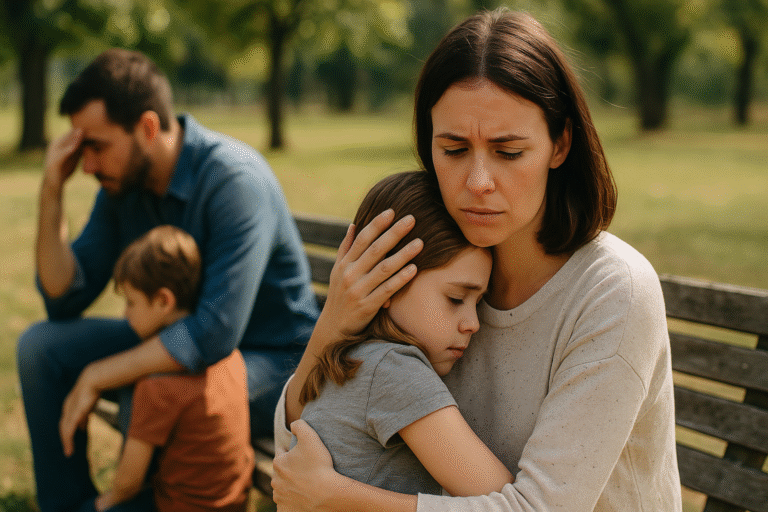When a woman undergoes treatment for cervical cancer, the immediate goal is clear: survival and eradication of the disease. However, the journey doesn’t end there. Life after treatment presents its own set of challenges, particularly in the realm of sexual health. Many women find themselves navigating uncharted waters, as they deal with the persistent effects of treatment on their sexual well-being. Understanding these challenges and developing strategies to overcome them is crucial for reclaiming a fulfilling and joyful life.
Cervical cancer treatments, such as surgery, radiation, and chemotherapy, can have profound and lasting effects on the body. They often bring about physical changes and emotional challenges that directly impact sexual health. These effects can include pain during intercourse, vaginal dryness, decreased libido, and physical alterations to the pelvic region. For many, these changes can lead to feelings of frustration, sadness, and even depression, as the body no longer responds in familiar ways.
Here’s a closer look at some of the persistent effects of cervical cancer treatment on sexual health and practical strategies to overcome them.
### Physical Changes and Their Impact
#### Vaginal Health
One of the most common physical changes women face after cervical cancer treatment is related to vaginal health. Radiation, in particular, can cause vaginal stenosis, a condition where the vaginal walls narrow and lose their elasticity. This can make intercourse painful or even impossible in some cases. Additionally, treatments often induce menopause, leading to reduced estrogen levels and, consequently, vaginal dryness.
#### Pelvic Floor Dysfunction
Treatments such as surgery can damage nerves and muscles in the pelvic area, leading to pelvic floor dysfunction. This can cause pain not only during sex but also during daily activities, impacting overall quality of life.
### Emotional and Psychological Impact
#### Altered Body Image
Coping with the changes in body image post-treatment is another significant hurdle. Scarring, weight changes, and hormonal shifts can all alter how a woman perceives her own body, which in turn can affect confidence and sexual desire.
#### Emotional Distress
The journey of battling cancer is emotionally exhausting. The stress of diagnosis, treatment, and recovery can take a toll on mental health. Anxiety, depression, and post-traumatic stress disorder (PTSD) are not uncommon and can interfere with the ability to engage in and enjoy sexual activities.
### Strategies for Overcoming Sexual Challenges
#### Open Communication
Communication is key. Partners should strive to maintain an open dialogue about their feelings and any difficulties they are experiencing. This can foster understanding and patience, which are crucial as they navigate the changes together. Seeking the help of a therapist or counselor can also provide valuable tools and strategies for effective communication regarding sexual health.
#### Professional Guidance
Consulting with healthcare professionals is essential. Gynecologists or oncologists can offer specific medical advice or treatments tailored to the individual’s condition. For example, vaginal dilators and moisturizers may be recommended to help alleviate vaginal dryness and prevent stenosis. Pelvic floor physical therapists can work with women to strengthen and rehabilitate pelvic muscles, reducing pain and improving function.
#### Rebuilding Desire and Intimacy
Rekindling desire and intimacy may require creativity and patience. Couples can explore different types of touch that are pleasurable and comfortable. Focusing on sensations other than penetration can often help in rebuilding intimacy without pressure. Relaxation techniques, such as mindfulness and massage, can create a sense of closeness and enhance sexual enjoyment.
### Continuing Care and Long-term Outlook
A comprehensive approach to wellness extends beyond the physical aspects of recovery. Psychological support plays a vital role as well. Support groups or individual therapy can provide a safe space to explore feelings and gain insights from others who have faced similar challenges. This community support can be invaluable, offering reassurance and shared wisdom.
Recognition of changes to sexual health and addressing them proactively is crucial. For many women, sexuality is an integral part of life’s enjoyment and identity. Being proactive in seeking solutions and staying informed about the latest research advances in post-cervical cancer treatment can make all the difference.
### Conclusion
The path to overcoming sexual challenges after cervical cancer treatment is deeply personal and varies widely for each individual. However, knowledge, open communication, professional guidance, and a support network are universal tools that can empower women to reclaim this aspect of their lives. Rebuilding intimacy and sexual health requires courage and determination, but it is a journey well worth taking. Success lies in honoring one’s body, recognizing its resilience, and embracing the possibilities of renewed pleasure and connection. Life after cervical cancer can be not only a second chance but a source of new beginnings and fulfillment.



